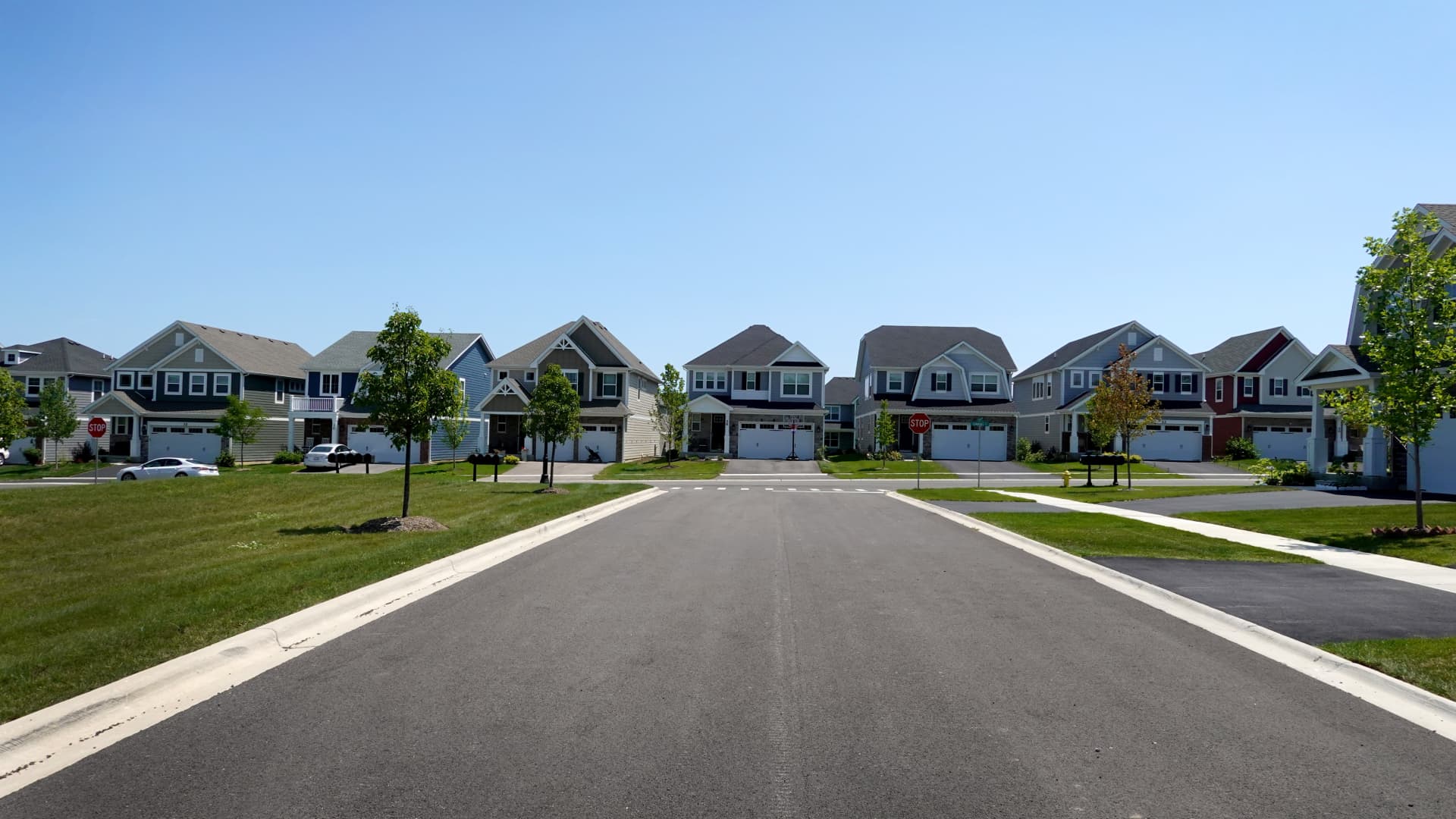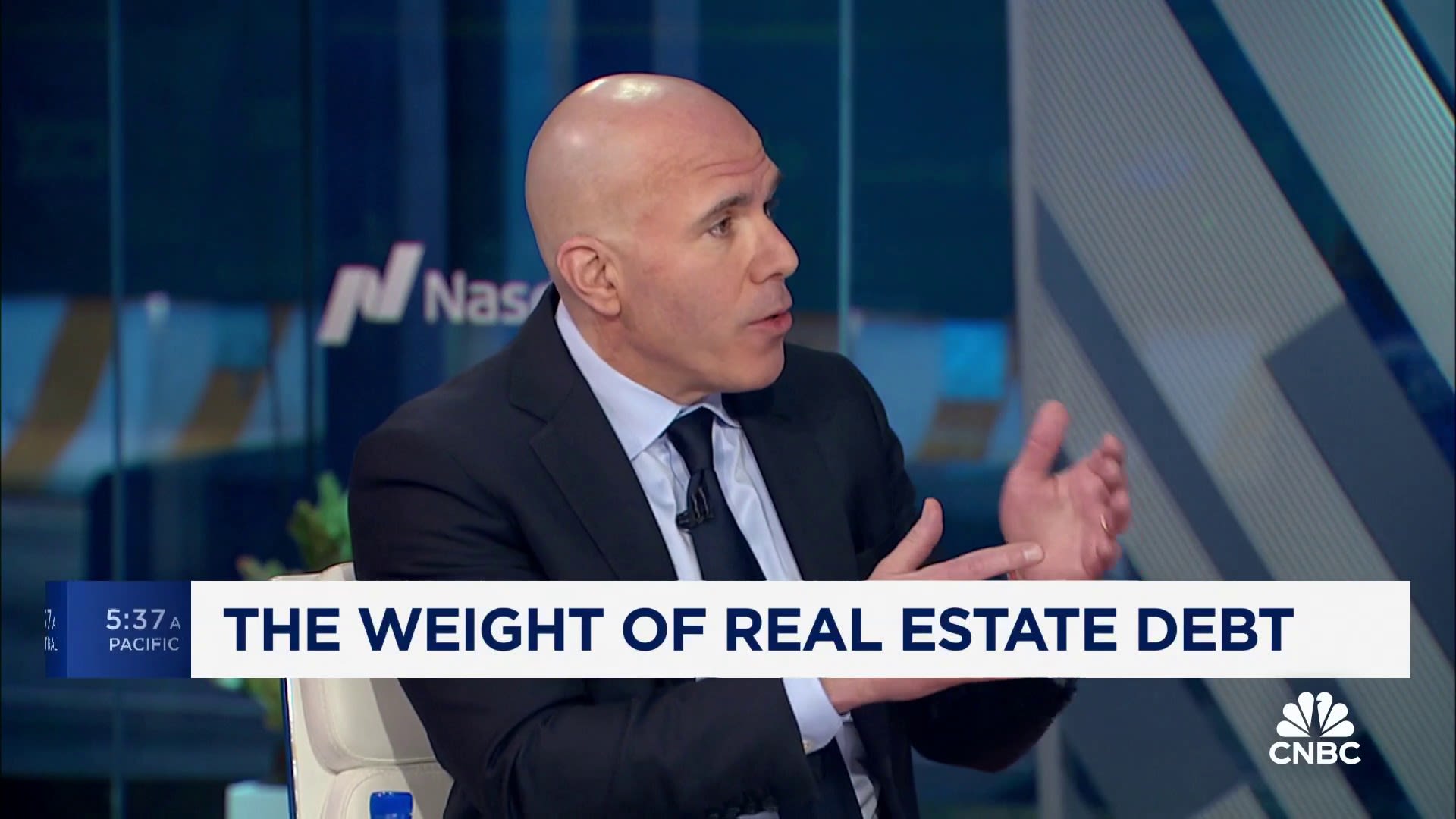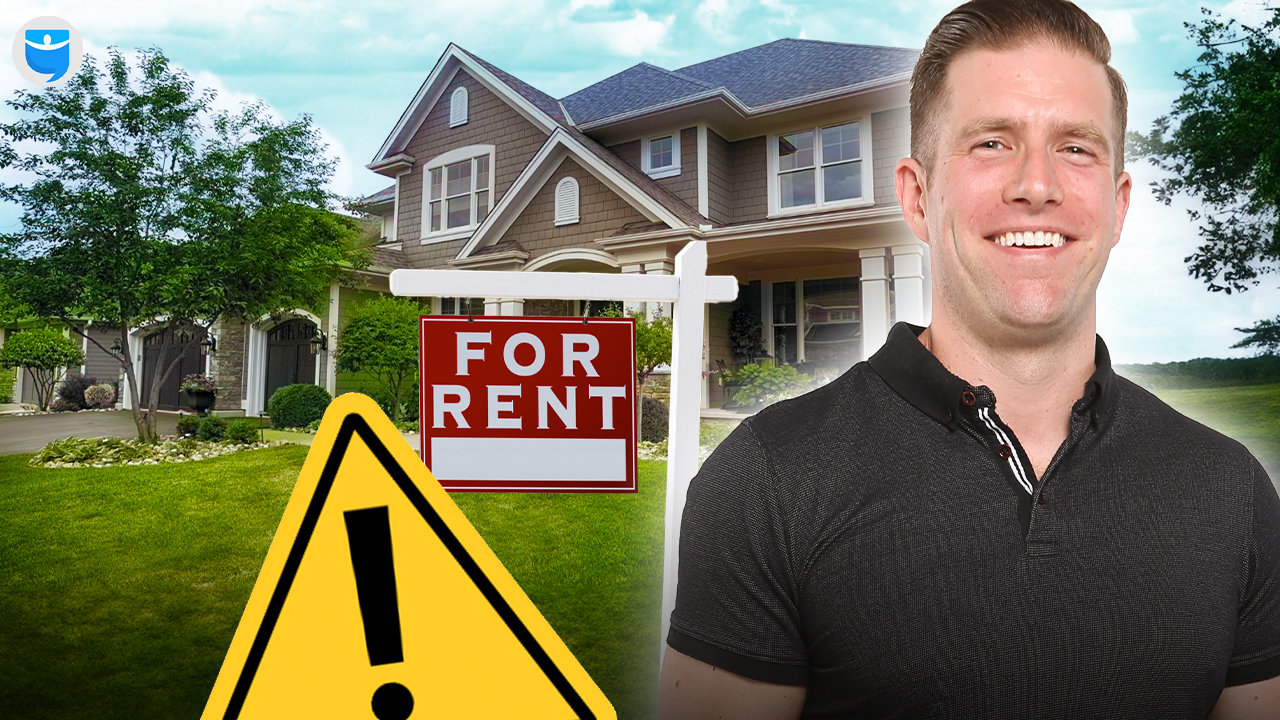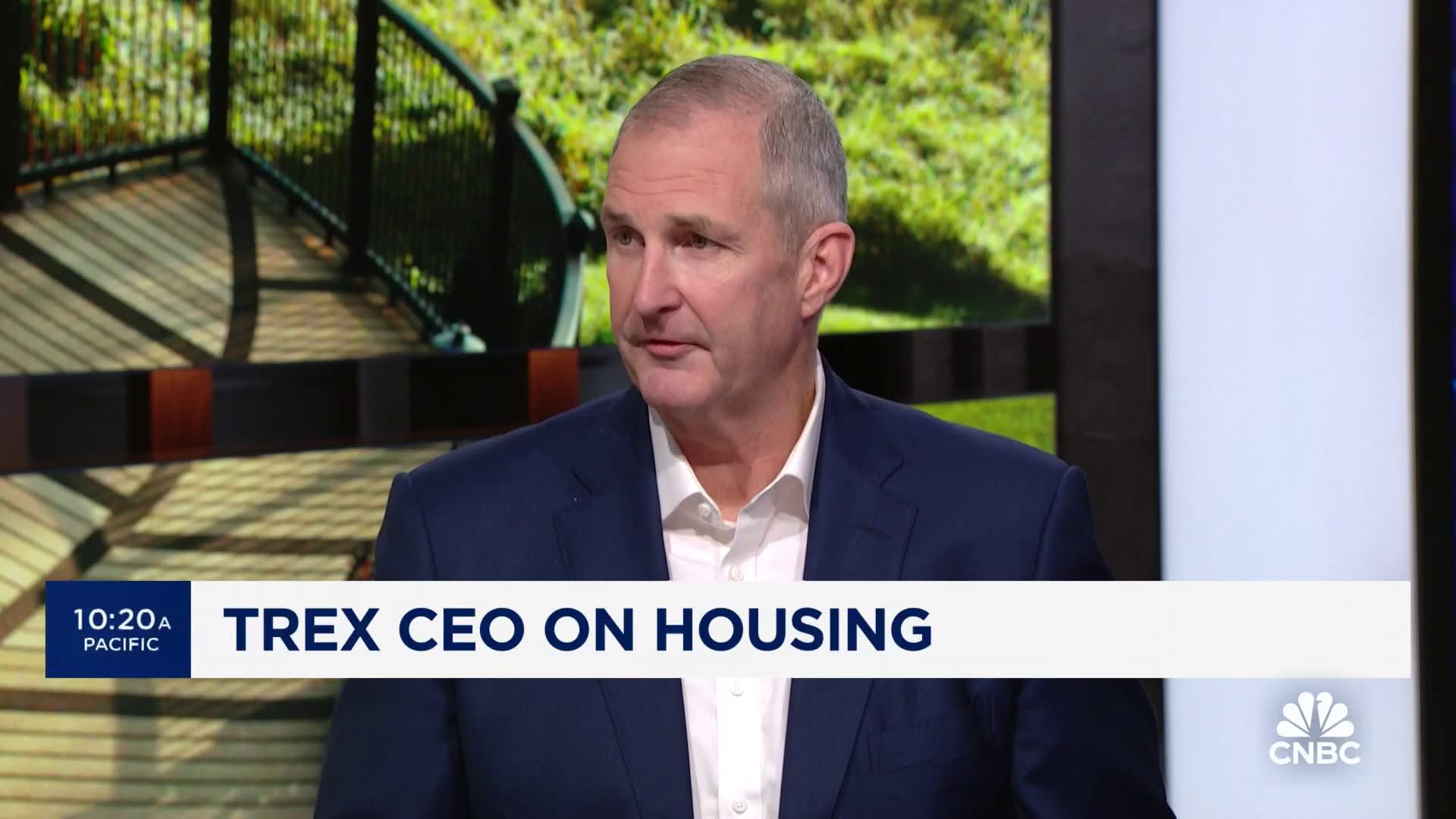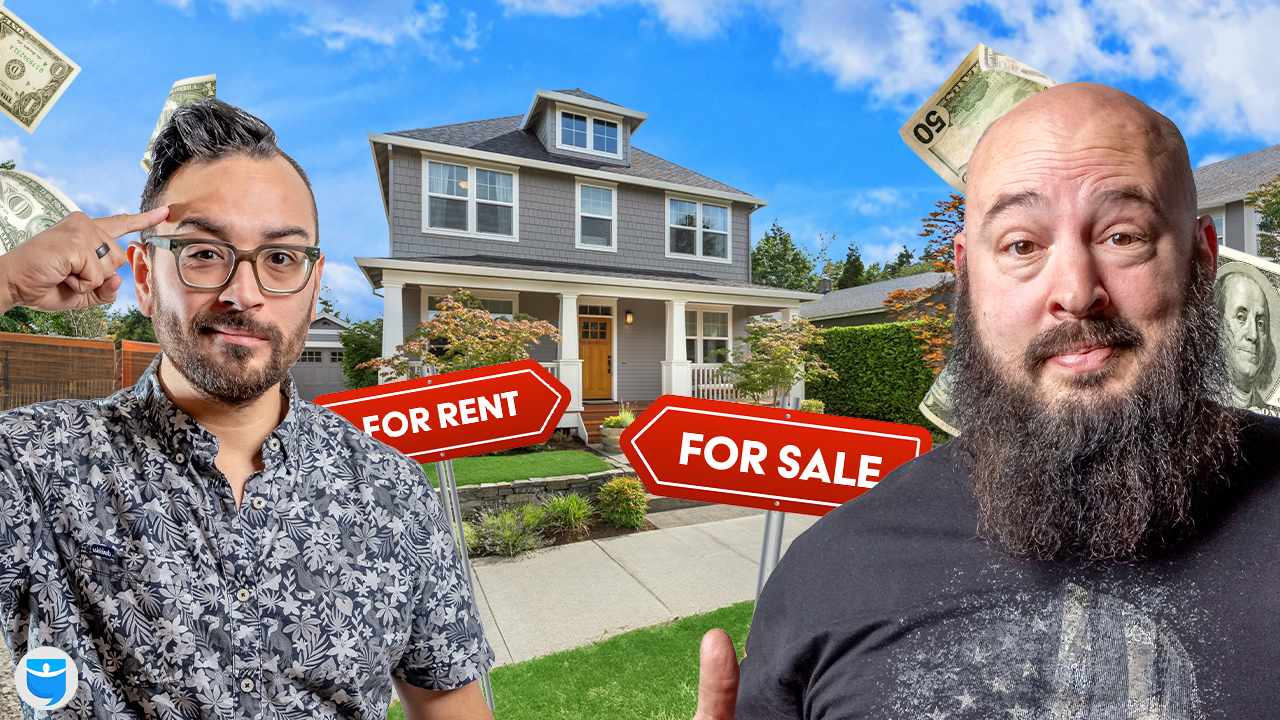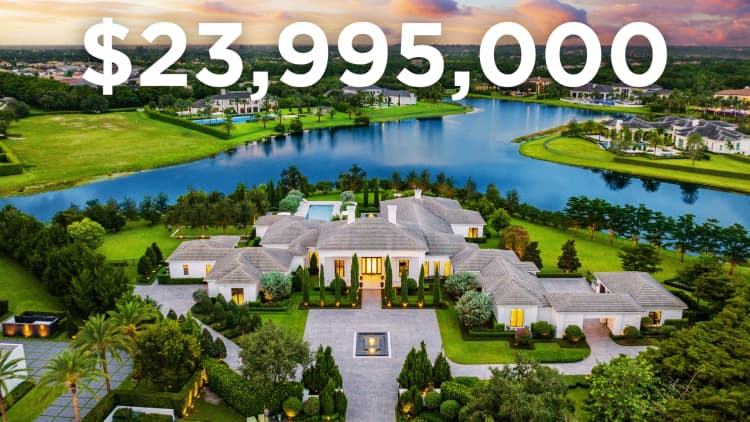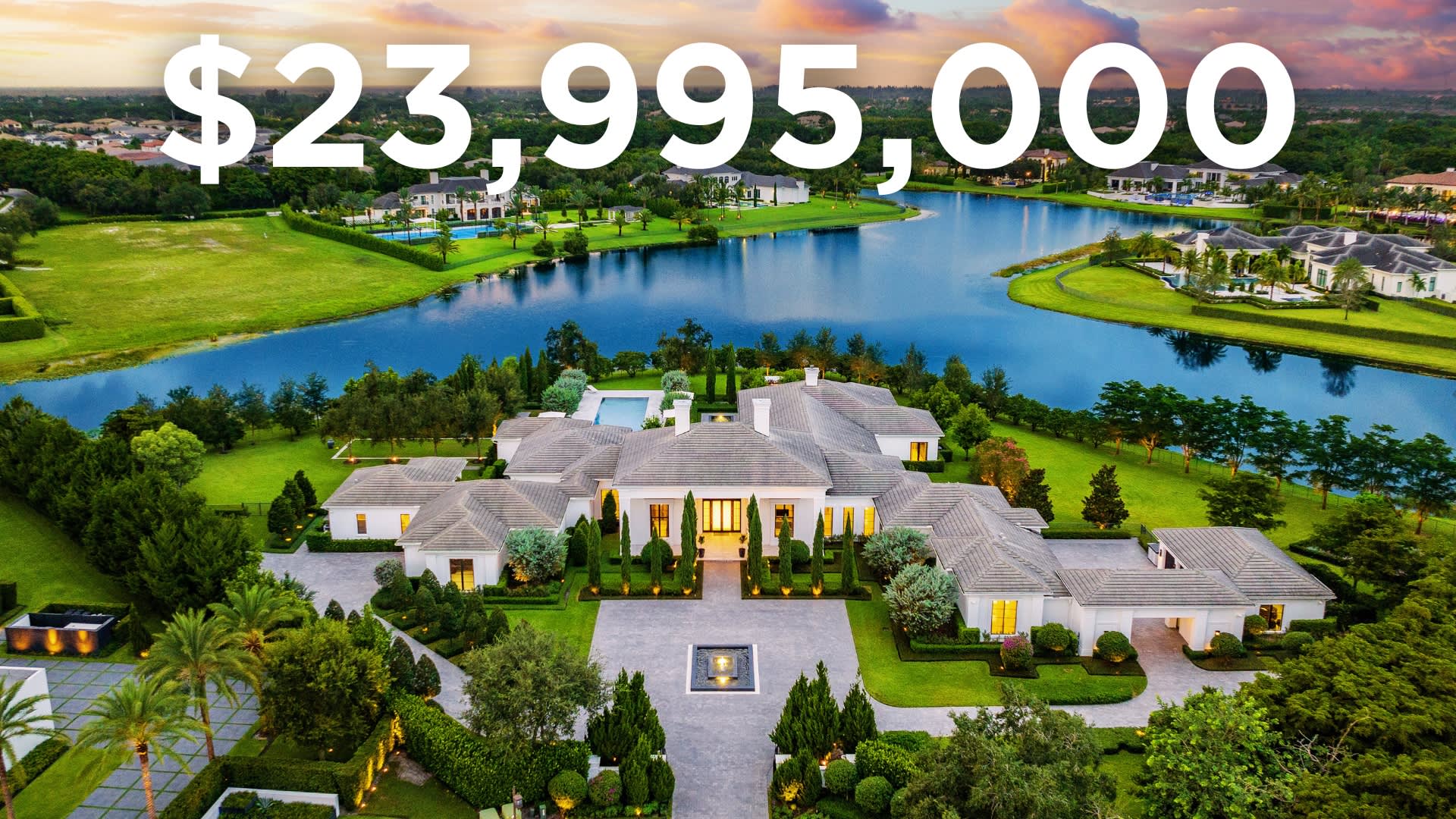China Falters and Israel’s Oil Danger Used Against Them
China’s economy is on its last legs. Thanks to massive overspending and high unemployment, the Chinese economy is beginning to break down, with real estate prices crashing at a scale similar to 2008 in the US. This is bad news for not only Chinese investors but also global investors with money in China. But could these tumultuous conditions spill over into the global economy?
We’ve got arguably the world’s best economic forecaster, Joe Brusuelas, back on the show to get his take on the global economy and what could be next for the US. Joe has studied the Chinese economy in-depth and sees a “debt and deleveraging period” forming. This is bad for Chinese investors, but will it affect the US housing market? Next, Joe speaks on the other global crises, from Israel to Ukraine to Iran and beyond. With our global reliance on importing commodities like wheat and oil, how risky are we getting with the massive Middle East and Eastern European conflicts?
Finally, Joe touches on domestic trends, including one substantial economic insight that could point to a new era of economic productivity in the US. This could be game-changing for you if you own stocks, bonds, real estate, or any other US-based investments. What trend are we talking about? Stick around; we’re getting into it all in this episode!
Dave:
Hey, what’s up, everyone? Welcome to On the Market. I’m your host, Dave Meyer, and today we’re going to step into the macroeconomic global economy. And I know on the show we normally talk about real estate and housing, and we are still talking about that tangentially. But we’re sort of going to zoom out and talk about what is going on a global stage, and how things that are happening in China, the conflict in Israel, the war between Ukraine and Russia are impacting global economics, and how that might translate to our investing decisions here in the United States.
To do that, we’re bringing back one of our most popular guest ever, Joe Brusuelas, who’s the principal and chief economist at RSM. He was actually named the best economic forecaster in 2023 by Bloomberg, so you’re going to want to pay attention, especially at the end here where he gives some very specific predictions and forecasts about where he thinks the US economy is going.
Before we bring Joe on, I just want to caveat that some of the stuff that Joe’s talking about is a little bit more advanced. It’s a little bit extrapolated from direct real estate investing decisions. But I encourage you to listen and pay close attention to what Joe’s talking about, because he really helps explain what’s going on in global stage, and then translates that back to what it means for you and me and our personal investing decisions.
So with that, let’s bring on Joe Brusuelas, the principal and chief economist at RSM. Joe, welcome back to the podcast. Thanks for joining us again.
Joe:
Thanks for the invite, and I always look forward to talking with you.
Dave:
Likewise. Well, let’s just dive right in. I want to start here by talking about China. Can you give us a broad economic overview of what’s happening in China and why their economy seems to be taking a bit of a nose dive?
Joe:
So the Chinese have entered a period of debt and deleveraging. I’m not going to call it a crisis, but one economic era in China has ended and a new one’s beginning. In some ways, it looks a little bit like what Japan went through in the nineties, and what the United States went through between 2007 and 2014. There’s an enormous debt overhang in their banking sector, in their housing sector, and their commercial real estate sector, and that’s really caused the economy to slow to a crawl.
Now, China, who for the past four decades has relied on a model that basically revolved around state-directed investment in infrastructure, housing, and commercial real estate. That development model now has reached an end. They’re in what economists would call a middle income trap. They’ve gone about as far as they can go with the current approach, and it’s going to have to change, but the problem is the political authority is not comfortable with changing that up. Essentially, they’re going to have to spend the next seven to 10 years working down that debt. They’re going to be selling properties around the world to repatriate capital to deleverage. Now, anybody out there who’s listening, this should resonate because this is what happened in the United States after an epic housing bubble that burst, which obviously caused real problems and came close to causing the United States domestic banking system to collapse.
Now, because China’s a one-party authoritarian state, they’re trying to slow drip to work their way through this. The current policy path isn’t to reflate the housing sector to absorb the excess inventory; it’s to redirect risk capital away from housing, buildings, infrastructure towards manufacturing. Problem is, they can’t mop up that excess supply. We already for the last about a half a year or so have seen an export of deflation out of China. China is going to attempt to export the burden of adjustment to its trade partners, primarily in North Asia and Southeast Asia. It’s going to cause a problem, because China is really trying to protect its employment base. They don’t want to see a significant increase in unemployment from already current elevated rates.
Now, what that means is if you trade with China, when you buy their industrial goods and you produce industrial goods yourself, you’re going to have to accept a smaller share of manufacturing as a percentage of global GDP. That’s going to cause an increase in tensions both economically and likely in the security side through all of Asia. Now the Chinese just, again, aren’t going to be growing at 7-10% anymore. India’s the one that’s going to do that. China’s going to be slowing to probably that 2-3%. Even the 5% they reported for last year is highly dubious. So we really are in a different world when it comes to Chinese growth.
Dave:
That’s super interesting. Thank you for setting the stage there. And just to make sure I understand what’s going on, they have extended themselves too much in terms of debt, and that’s mostly revolved around real estate development, right? They’ve poured a lot of money into building, like you said, commercial real estate. You see a lot of residential towers that have gone empty.
I’m just curious. Because, as you said, China is a one party authoritarian state, how did this happen? Because in the US, in retrospect, we can sort of trace this to lax lending standards and a lot of different debt practices that happened in the private market. But how does this happen in state-controlled investments, as you said?
Joe:
Well, when you look at China’s… The composition of how their economy is organized and where it’s directed, we often in the West make the mistake of thinking it’s a one-party, communist-controlled state, and Beijing controls everything. That’s not the case. A lot of the development was driven by the prefects, the states or the municipalities, the cities. Not just in the state-owned banking sector, not even on the private real estate developers or the private commercial real estate developers, but the debt at the states and municipalities is anywhere between $15-66 trillion depending on who you listen to. So their development model, in many ways was locally driven in a way that didn’t have proper oversight or accounting. So they’re in a real difficult situation where they’re going to have to work down that debt.
If you remember 2007 to 2010, Ben Bernanke’s heroic move to create a bad bank inside the Fed to take those distressed assets off the hands of the financial markets, the banks and other owners of that debt, and to create a situation where we could buy time to deleverage. This is going to be difficult. Right now, the Chinese just haven’t moved to create that bad bank that’s going to have to be created.
Another example that some of your listeners might remember is the savings and loan crisis from the late eighties, early nineties. Essentially, we created a long-term workout strategy vehicle set up by the federal government, and it took until literally the eve of the great financial crisis, 2008, when it was really getting intense, for us to actually have worked through all the backlog of all that bad debt, all those overpriced properties. It took a good 20 years.
And so the Chinese haven’t even really got down the road on that yet. That’s why the policy pathway they’re taking is quite problematic. I’m not convinced that it’s going to work. They’re going to need to simultaneously reflate the financial system and the household, the Chinese household, in order to absorb the excess capacity.
What that does is it creates a situation where what’s happening now, they’re just turning and taking on more bad debt, which is going into unproductive investment in a situation where industrial policy amongst the advanced developing nations has returned. And it’s going to be difficult for the Chinese to sell anything other than low-value added materials into the West, and that’s not what they’re really building right now. They’re building value added goods that no one’s going to be interested in buying.
So the next three years with respect to China and its relationships with the West and the rest is going to be fraught with difficulty and very tense.
Dave:
Okay, so now that we’ve discussed why China is in such financial trouble, we’re going to discuss how this impacts the US and global economy right after this break.
Welcome back to On the Market podcast. We are here with Joe Brusuelas. I just want to ask one follow up first about the bad bank that they created here in the United States. Can you explain that a little more detail and how that helped the US over the course of 6, 5, 6 years get through the debt crisis, and how that differs from the Chinese approach?
Joe:
Sure. In some cities, we had a 50% decline in housing crisis. People were underwater. Those were distressed assets on the balance sheet of banks. Those assets had to be removed so that those banks stayed solvent, because we went from a liquidity crisis to a solvency crisis. Right? Federal Reserve was buying those assets. They were injecting liquidity or flooding the zone with liquidity, which then reflated the banking sector. We prevented a great depression, but the period from 2007 to 2014 featured one of the more disappointing economic recoveries we’ve seen in the post-second World War era, and it wasn’t until 2014 that the economy truly recovered.
When you go back and you take a look at debt and deleveraging eras, typically it takes seven to 10 years to work through it. Now, we got through it in seven years. There’s a case be made that Japanese are just coming out of it four decades later. So the policies put forward by the Bernanke era Fed and were sustained by the Yellen era Fed in terms of using the balance sheet of the bank to smooth out fluctuations in the business cycle. In the case of Bernanke, avoiding a great depression, and then again during the J. Powell era of avoiding a serious economic downturn during the pandemic, which was a whole unique and a separate discussion, are examples of how the Fed or the central bank can use its balance sheet, in the case of Bernanke, to create a bad bank.
We know how to do these things. These are not unusual. We had the depression, we had several property crashes. Of course, the savings and loan crisis with the Resolution Trust Corporation set up by the Bush Administration is a prime example of a non-central bank approach, using the fiscal authority to do it.
The Chinese are going to be forced to do this. Right now they don’t want to because they don’t want to admit that their economic model has fundamentally changed to the point where it’s not sustainable. In an open, transparent democracy where you would essentially let things fall, cause an increase in unemployment, let bankruptcies happen, let the market work so it clears… Not friendly, very painful. Right? But you end up getting through these things a bit quicker than you do in sort of the closed, non-transparent systems that are… Again, the Chinese is one of the more opaque systems. So I am not confident that they’re going to bounce back anytime soon, and again, I think that the era of 7-10% growth in China is just now over. They’re going to be growing at 2-3% just like everybody else.
Dave:
Well, that was sort of my question, is that if everyone else is growing at 2-3%, what’s the problem here? Do they need to grow faster to pay off this debt and go through the deleveraging, or is it they just have broader aspirations than a lot of the rest of the world?
Joe:
Their unique challenge is the size of their population. For years, conventional wisdom said that if growth were to slow below 5%, they would have significant social problems because it wouldn’t accommodate the growth in the working age population, depending on which number you believe or are looking at. Youth unemployment’s clearly around 20%. In a democracy, that’s a crisis. Right? In an authoritarian state, that could be an existential problem that has to do with the stability of the regime. So China’s got unique challenges due to its size and the composition of its society and economy, and we shouldn’t compare it to Europe or the United States or even Japan.
Dave:
And I believe that they stopped sharing data for youth unemployment. They’ve just stopped releasing that data as probably shows the depth of how serious a crisis they see this as.
Joe:
Well, earlier I mentioned that I didn’t quite believe their 5.2% growth rate in 2023, but one of the reasons why is it’s an already opaque economies become even more so. The shop stopped sharing data. The alternative data that we were using to look at say like electricity generation has also clearly been constrained. So it’s difficult to get a sense on what the true growth rate is.
When you talk to people on the ground, it doesn’t sound or look like the official data, which causes me to tend to think that no, they’ve slowed and they very well could have contracted last year. If you listen to people on the ground, that’s what they’re saying. I don’t know that that’s the case, but something’s clearly not right, and they’ve definitely entered an era of debt and leveraging.
Dave:
So given this slow down and this crisis that’s going on there, how does this impact American investors?
Joe:
Well, what it does is it’s what you’ve seen. You’ve seen capital exit China. You’ve seen the dollar grow stronger. We clearly are past our problems with inflation. So my sense is that the United States is going to be the primary generator of global growth, along with India and a few of the other emerging markets. It’s likely because of the unfortunate geopolitical competition we’re now engaged in with China that it will lager better for investment in capital flows into the United States simply because it’s just not as risky as it is putting it in China. China’s moved to the point where it’s virtually uninvestable, I think. People have been saying that for a while, but based on what I’ve observed in the post-pandemic era 2023, I think that that’s true now.
Dave:
Wow, that’s a bold statement. It’s a big difference from where we were five or 10 years ago, isn’t it?
Joe:
Yes, and also the way we talk about China. Look, China’s going to be a problem geopolitically. They steal our technology. They’re going to be problems in the South China Sea and the Taiwan Straits. All that’s not going to change. But the idea of China taking over the world via their economy, I think is actually just simply not true.
Dave:
So before we move on, because I do want to talk about some of the other geopolitical stuff going on, last question about China here, Joe: Is there any risk that the turmoil in the Chinese property market spills into American banking or American property markets?
Joe:
Right now it looks to me like it’s more of a domestic local issue. It does not have the properties of a global systemic challenge, like what occurred after the United States financial system came close to collapsing. It’s been going on now for two years. And it’s been clear for a year and a half, two years that China was caught in a debt trap. Right? So the deleveraging in terms of the big globally important systemic banks has largely occurred. Now, this does turn into a crisis inside China. We’ll have to watch closely. Because it’s not what we know it’s what we don’t know and then the risks taken. But right now the answer would be a qualified no.
Dave:
Okay, so we’ve gone through what’s happening in China now, and next we’re going to delve into what’s going on in Europe and Israel right after this quick break.
All right, so now that we’ve sort of gone deep on China, and thank you for your insights here, there are two other major conflicts going on in the world. Obviously we have Russia-Ukraine, and the conflict in Israel. So I want to talk just economically speaking, how are these things? How do you see this confluence of geopolitical instability going to impact the global economy?
Joe:
So when you think about the global economy, the first thing you should think about is commodities. The foremost of those commodities are energy and wheat, oil and grains. So let’s take what’s going on in the Eastern Mediterranean, Red Sea and the Middle East. Clearly, that’s roiled the region. The Israeli economy contracted at a significant pace and is in recession. But we did not see a disruption of oil prices other than a modest period of volatility.
But when one is looking at the US economy like I do and the global economy like I do, you have to always think about the risk matrix. And in this case, the channel through which that risk would be transmitted is the oil and energy channel. In many ways since October 7th, my assessment hasn’t changed. As long as the conflict does not involve the attack and/or destruction of oil producing facilities in Iran, this is something that’s going to be largely contained with periods of enhanced volatility.
So that’s a risk, but it’s not dragging down either the global economy or the US economy. With respect to Ukraine, the invasion of Ukraine created the conditions where we had a massive spike in oil. That was largely a reason why US CPI, the inflation moved up to above 9%. But we’ve come back from that peak and we’re through that. The other component of that is the export of wheat out of the Crimea, out of Ukraine, and then that’s caused problems in emerging markets. But again, we’re two years past. The United States, Argentina, Australia, Brazil have flooded the world with those same products to the point now where food prices have come back to earth. Right? So when you’re thinking just purely about the risk matrix, the commodities channel, it’s grains and oil.
Okay, now there’s a bigger question out there around Ukraine and Russia that’s got to do with the political dysfunction inside the United States, which is how to fund the Ukrainian war effort by the West. We’re beginning to see the entertainment of very unorthodox ideas. Today, the Secretary of the Treasury, Janet Yellen was talking about unlocking the value of those frozen Russian assets, IE the $300 billion in Forex reserves sitting in Europe and the US, a little over $200 million in Europe, a little less than $100 billion here in the United States.
Right now the Western powers are considering something very unorthodox, which is not confiscating the assets, but taking them, putting them in an escrow account, using them as collateral to float essentially zero interest bonds to finance the war effort. Now, that may be over 20 or 30 years, but that would create a series of incentives for one, the Russians to not continue with this; two, it would fund the defense of Ukraine; and three, it would avoid the confiscation of those assets because the idea is they’re just being used as collateral. They’re going to be paid back, and the Russians can have them back after 20 years.
This is some very difficult terrain we’re now caught in, and the innovative financial mobilization of the deep reservoir or pools of capital in US financial markets and European capital markets, it does represent the next mobilization of Western power in approaching this fight, and I would expect this is going to be part of the narrative going forward in global financial markets and the global economy and international security over this next couple of years. These are extraordinary things that are happening in real time that we really haven’t seen since even like 1914, when John Maynard Keynes was called the London to come up with a plan to prevent the collapse of the UK financial market, which was then the center of the world economy. And it was during a week when two-thirds of the gold reserves in the Bank of England were basically withdrawn in three days. We’re not quite in that sort of emergency here, but we are seeing the sort of same innovative proposals put forward by the community of economists and financial professionals in order to think about how to deal with all of this.
Dave:
Do you think these types of proposals represent, I don’t want to say desperation, but an increased risk to the market because we’re traditional methods or what we’ve been doing so far haven’t been working?
Joe:
Well, I don’t think it’s risk. I think what it is that your situation where you’re acknowledging the reality of the difficulties of the US political entity. So we’re thinking about how to get innovative until that can be ironed out. My sense here is that the West has been reluctant to mobilize its most powerful asset, one of those financial markets and those deep pools of capital. They’ve done things on sanctions, they froze the assets due to the illegal action by the Russians, but they have yet to really even push secondary sanctions onto the Russians. But the fact that they’re doing this means it’s getting a bit more serious.
Now, I don’t think it’s a point of desperation at all. The risk is that you would ruin the reputation for reliability, the rule of law and contracts in Europe and the United States when it comes to investment. That’s why it’s important that this not be a seizure, that it not be a confiscation, that it just be a more innovative proposal that retains ownership. But we’re going to use this because what you did was not a good idea and is actually illegal. It’s a challenge of the rules-based order that the United States and Europe is in charge in, and we don’t intend to see that go. What’s the use of all of this capital, all of this wealth, if we’re not going to defend that which is most dear, and I think that’s essentially what’s happening here.
Dave:
Got it. Well, that’s sort of fascinating. I hadn’t heard of this, but it’s certainly going to be interesting to see how it plays out. Before we get out of here, Joe, I’m just curious, what’s your outlook for US economic growth? You said you think US and India are going to lead global growth. Do you think that’s going to start this year, or is that more of a long-term forecast?
Joe:
It already started. Right now our forecast for the year was that we had 1.8% growth right at trend, but it’s looking that it’s going to be quite a bit stronger, quite possibly in the 2.5-3% range. Unemployment will range between 3.7-4%. By mid-year, we’ll be at 2% in the core PCE; 2.5% in PCE, that’s the Fed’s policy variable; and by the end of the year, CPI will be back at 2.5%. In other words, price stability will have been restored by the Federal Reserve, which you’re going to see is as inflation comes down. That means the real wages of people increase, and that’s going to support overall spending, which is why we had significant risk to the upside of faster growth on our annual forecast. We put the forecast together last November and we haven’t changed it. We had a 15, that’s one 5% probability of a recession, and a 25% probability that the US economy would outperform our 1.8% forecast. That looks like where we’re going.
Now with respect to rates, we thought we’d see 100 basis points of rate cuts. That’s 425 basis points starting in June. Pushing down the front end of the curve, we think that due to the issuance of treasury supply and the decline in the cash on hand in the reverse repo program, you’re going to see rates begin to move up here pretty quickly. We’re already between 4.25 and 4.3. I expect we’ll move closer to 4.5, and then down to 4.25 at the end of the year, and that’s our year-end target.
We had a good year last year. Bloomberg named us as the best rate forecaster along with our colleagues at Goldman Sachs. So we take that portion of the forecast and all the forecasts significantly, and we’re very serious about that.
We think that by the end of next year, you’re going to have a positive upward sloping shape of the term structure, and this is going to be the first time we’re going to see something like this approximate, really since before the great financial crisis. Essentially, that period of zero interest rates, real negative interest rates as a tool of policy, is effectively in the rearview mirror. The normalization of the rate structure is upon us, and the economy will adjust accordingly. Now we think the United States is well-positioned to take advantage of that and do well.
Last thing I want to share with you, the most constructive and encouraging development in the US economy has been the boom in productivity over the past three quarters. Productivity in the United States has increased by 4%. This is an extraordinary thing. We haven’t seen levels like that since the 1990s. For economists, once you start thinking about productivity and growth, it’s hard to think about anything else. That’s that magical elixir or that mythical tide that lifts all boats. It means we can grow faster, have robust employment, low unemployment rates, low inflation. Most importantly, it lifts the living standard of all who participate in the economy.
That’s not something we’ve been able to say in a long, long time. You know what? We can continue to see productivity anywhere near the vicinity of 2.5%. That’s a game changer, and we’re going to be having a very different discussion around the economy at that point. One that doesn’t so much involve risks, but upside potentials and good things.
Dave:
Wow. Well, thank you so much, Joe. We really appreciate your insights here and your very specific forecast and thoughts on the economy. For everyone listening or watching this, if you want to learn more about Joe, we’ll put a link to all of his information where you can contact him, all that sort of stuff in the show description below. Joe, thanks a lot. Hope to have you on again sometime soon in the near future.
Joe:
Thank you.
Dave:
Another big thanks to Joe for joining us on this episode. I hope you all learned a lot. I sure did. The global macroeconomic climate is not something I study as closely as the housing market here in the United States, but I think it’s super important to just help you set this context and backdrop for your investing decisions. It’s super helpful to know are there a lot of risks outside the country that could start dragging on the US economy, or are there things that can increase geopolitical tensions. Because sometimes those are blind spots for us as investors that we might not see, and so we wanted to bring on Joe. In the future, I’d love your opinion on if we should bring on more people like this, because I personally find it helpful and think that it’s worthwhile for real estate investors here in the US to listen to, but would be curious about your opinion.
I do want to just clarify two things Joe was talking about at the end. He was talking about the yield curve and a bond yield. We don’t have to get all into that, but he was basically saying that at the end of the year, he thought that long-term 10 year bond yields would be around 4.25%, and that is important because that means if you extrapolate that out to mortgage rates, because bond yields and mortgage rates are highly correlated, that in normal times we would see mortgage rates around 6.25%. Normally the spread between bond yields and mortgage rates is about 190 basis points or 1.9%. Right now, they’re closer to 3%. So that means if Joe’s forecast is accurate, we’ll probably see mortgage rates at the end of the year be somewhere between mid sixes to high sixes. And of course, we don’t know if that’s for certain, but I just kind of wanted to translate what he was saying about bonds into the more tangible thing for real estate investors, which is mortgage rates.
The second thing he talked about, which I didn’t know and I think is super important, is about productivity. Now, productivity is basically a measure of how much economic output the average US worker creates, and it is super important in terms of economic growth. When you try and figure out GDP and how much economic growth there might be in a country, there’s really only two basic variables. How many people are working in an economy and how much economic value do they produce? And so if we’re in a time where our population isn’t growing as much as possible, and there’s only so much population growth and contributions in additions to the labor force that you can make at this point, and so the better way to grow the economy, according to most economists is to increase productivity. Now, a 4% increase may not sound like a lot, but that is huge, and as Joe was saying, if that trend continues, that could bode extremely well for long-term American economic growth.
Again, I hope this types of more global, more macro level look at the investing climate is helpful to you. We’d love to hear your feedback if you’re on YouTube, or you can always find me on Instagram and send me your thoughts about this episode where I’m at, the DataDeli, or you can find me on BiggerPockets and do the same.
Thanks, you all, so much for listening. We’ll see you for the next episode of On The Market.
On The Market was created by me, Dave Meyer and Kaylin Bennett. The show is produced by Kaylin Bennett with editing by Exodus Media. Copywriting is by Calico Content, and we want to extend a big thank you to everyone at BiggerPockets for making this show possible.
Help us reach new listeners on iTunes by leaving us a rating and review! It takes just 30 seconds and instructions can be found here. Thanks! We really appreciate it!
Interested in learning more about today’s sponsors or becoming a BiggerPockets partner yourself? Email [email protected].
Note By BiggerPockets: These are opinions written by the author and do not necessarily represent the opinions of BiggerPockets.
China Falters and Israel’s Oil Danger Used Against Them Read More »


